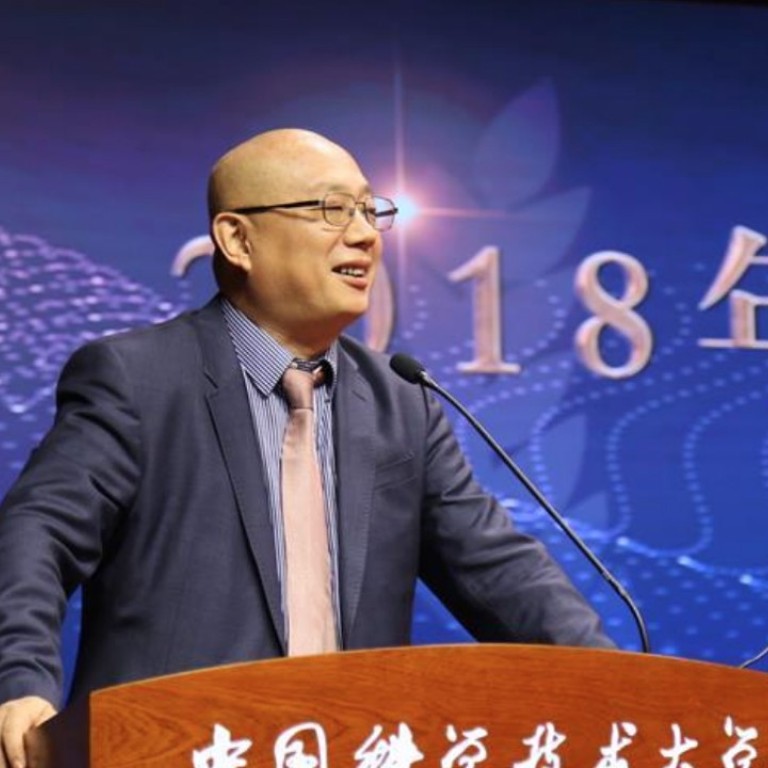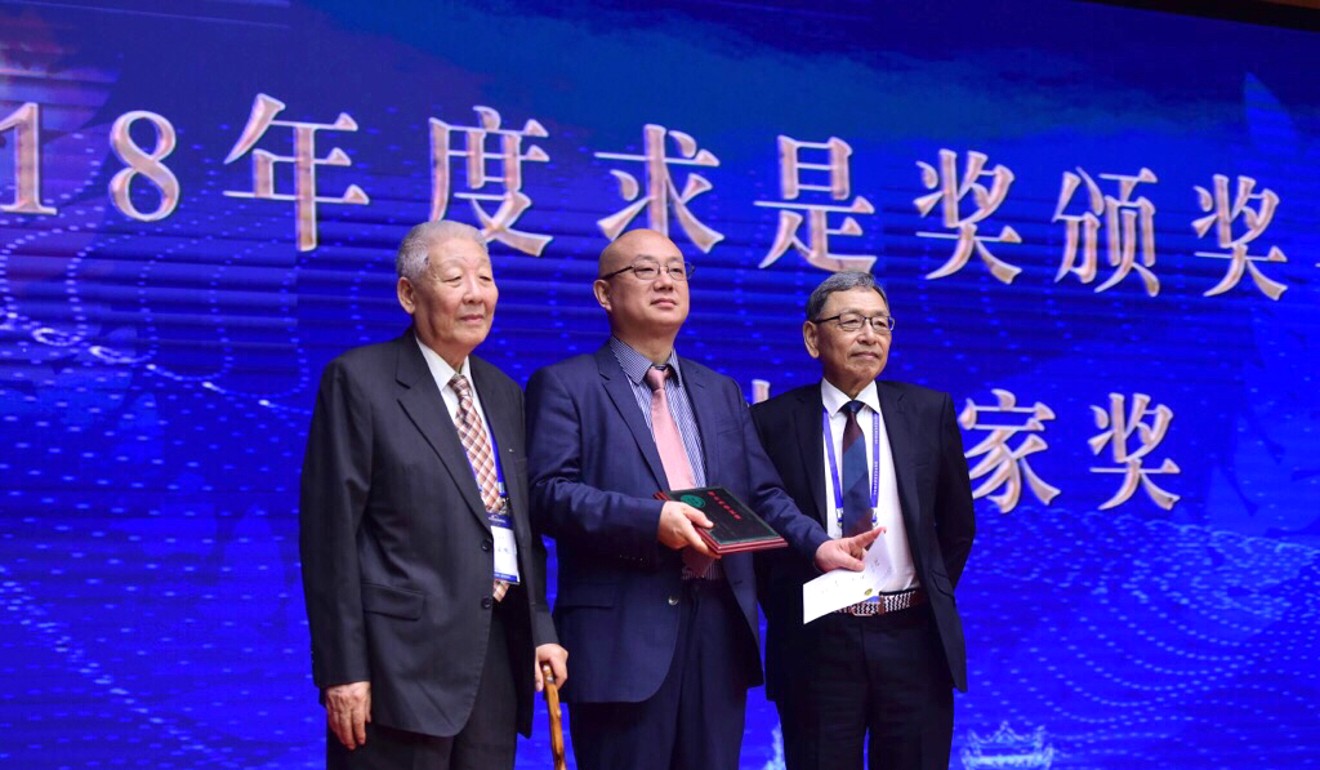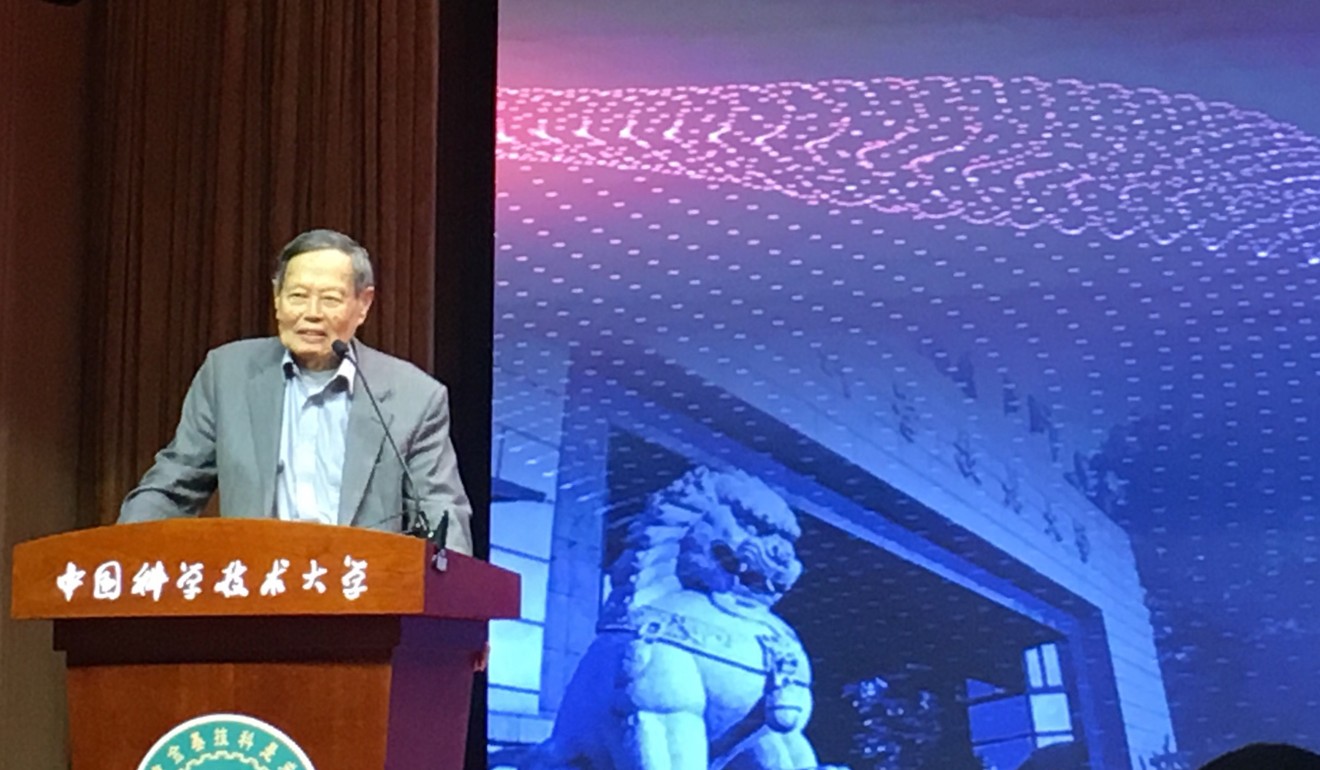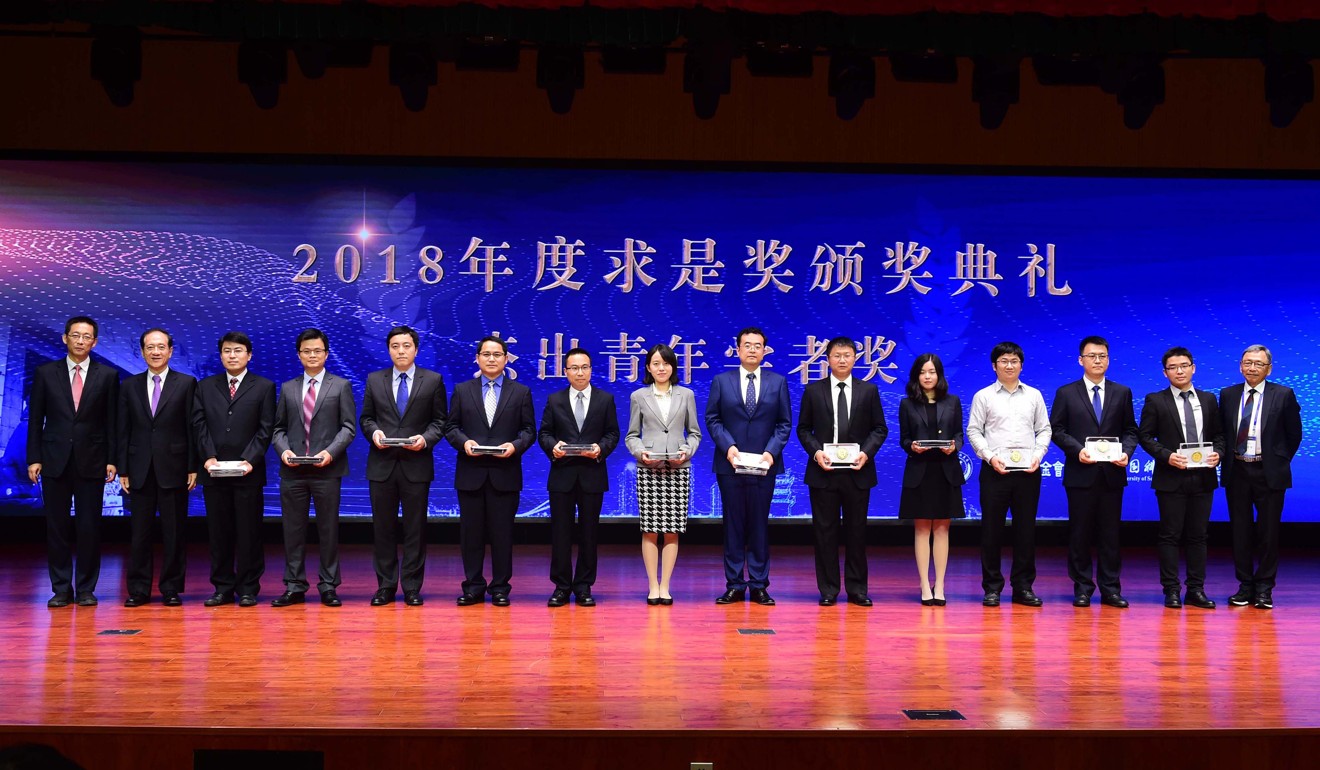
Science prizes put technological innovation at the heart of China’s progress
Prestigious Hong Kong science foundation rewards the brightest and the best
A chemist from mainland China has won a major Hong Kong science prize for his leading global research in the field of bio-inspired nano-materials, highlighting China’s pledge to become an innovation hub in its own right.
Jiang Lei received a grant of one million yuan (US$150,000) as winner of the Qiu Shi outstanding scientist award at a ceremony on Saturday night at the University of Science and Technology of China in Hefei, Anhui province.
Jiang, from the Chinese Academy of Sciences, is a pioneer in bio-inspired materials. He has developed self-cleaning fabrics and oil-repelling plastics from his observations of the natural characteristics of phenomena such as lotus leaves and fish scales.
Jiang’s work has filled in the blanks of previous studies on how properties in nature can be replicated by science – such as the water-repellent properties of a lotus leaf – first described by British polymath and scientist Thomas Young in the early 19th century.

Jiang’s research has so far yielded 70 patents in industrial applications such as anti-fogging glass and DNA chips in gene analysis.
“There is now a lot more funding for research and development than when I first came back from Japan in the late 1990s,” Jiang said.
“For the next 20 to 30 years, China will be at the centre of innovation. This is just the beginning.”
China’s Chang’e moon missions and how it achieved its first lunar landing
Jiang’s work has inspired scientists in other countries to conduct research in the same field, said Albert Chan Sun-Chi, chemist and former president of Hong Kong Baptist University, and a member of the awards committee.
His award comes just as the US escalates and expands its trade with China to include fundamental scientific research.
“What’s behind the trade war is technology, and talent,” said Shi Yigong, a renowned structural biologist at Tsinghua University.
“The fact is, China is not strong [in these aspects] and there is a big gap [between us and the West]. But the gap is closing,” said Shi.
“It was way bigger two and a half decades ago.”

Payson Cha Mou-sing, chairman of the Qui Shi Science and Technologies Foundation which funds the awards, said: “In the past 20 to 30 years, China has made tremendous progress in science and technological developments, becoming a hotbed for young scientists.
“But China has grown so fast we are now at a stage where we are on our own … We have to rely on scientific developments to sustain the growth of our country.”
The prestigious Qiu Shi annual awards – qiu shi means “quest for truth” – was established by the late Hong Kong industrialist and philanthropist Cha Chi-ming, father of Payson Cha Mou-sing, in 1994 and features Nobel laureate Yang Zhenning on its judging panel.
Previous Qiu Shi Award winners include Tu Youyou, who went on to receive the Nobel Prize in medicine for the discovery of artemisinin, saving millions of lives from malaria; Pan Jianwei, who later led the launch of the world’s first quantum satellite; and Zhang Yitang, who proved a theorem that had eluded mathematicians for more than a century.

This year, in addition to the main prize, 12 outstanding young scientists were each awarded a US$90,000 grant, over three years, in recognition of their returning to China, with all their scientific potential, after overseas education or employment.
The outstanding group prize went to a team of laser researchers from the Shanghai Jiao Tong University, Chinese Academy of Sciences and National Astronomical Observatory, for their contribution to laser nuclear fusion, a key technology for national defence and security.
Zhang Jie, leader of the laser research team and a physicist at the Shanghai Jiao Tong Unversity, is a former Qiu Shi outstanding young scientist – receiving the development award in 1994 on his return from the UK’s Oxford University.
“This year is a key point, 40 years since China’s economic reform and opening-up, but with our science and technology still falling behind,” Zhang said.
“One of the goals of these awards is to make our country stronger through technological breakthroughs and we will continue to work towards that goal.”
Chinese scientists discover lithium-rich star that could help explain how the universe evolved
Zhang said the outstanding young scientist award – US$30,000 per year for three years – had helped him greatly, both in his life and research, at a time when his salary in China was only a few hundred yuan (less than US$100) per month.
This year, the number of recipients of the outstanding young scientist prize grew from 10 to 12, in line with the foundation’s aim of luring more talent back to China.
“The research and development support is better than before in China. Besides, it’s close to my family,” said Wang Xiao, a postdoctoral biochemist fellow at Stanford University, explaining her decision to return to Peking University this year.

